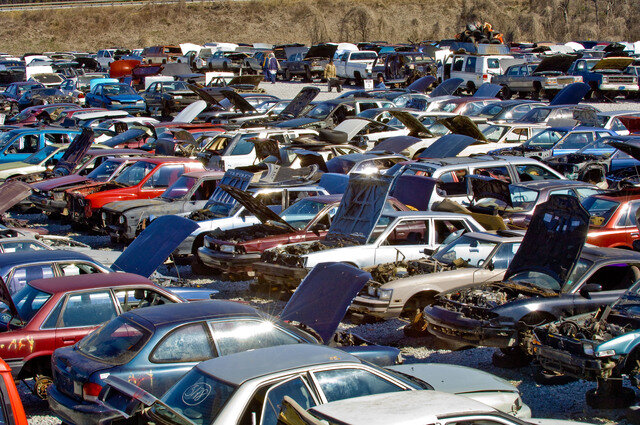
Good morning America
December 12, 2019
This is an internet stock photo, because it never occurred to me to ask Carol to photograph any of the half-dozen or so junkyards that passed our train window
Amtrak #5
The City of New Orleans
Riding on the City of New Orleans
Illinois Central, Monday morning rail
Fifteen cars and fifteen restless riders
Three conductors and twenty-five sacks of mail
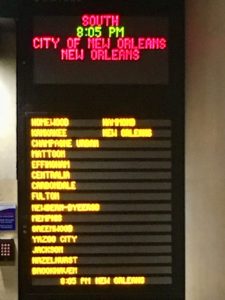
Note it does pull out of Kankakee
Carol and I boarded Amtrak’s #59, still known as The City of New Orleans, on a Monday, but not in the morning. There were eleven cars. There would be three sets of only two conductors each for the trip to New Orleans. There were 218 passengers. The train no longer carried mail. In short there wasn’t much still in common with Arlo Guthrie’s ballad, except this: Guthrie released his version of the song in 1971, and the cars we were riding in dated back to the 1970s.
All along the southbound odyssey
The train pulled out at Kankakee
And rolls along past houses, farms and fields
Passin’ trains that have no names
And freight yards full of old black men
And the graveyards of the rusted automobiles
Although the train itself had changed much since it’s musical tribute, the America we saw from the dirty and smudged Amtrak windows hadn’t. We still pulled in and out at Kankakee, albeit at night. We rolled along past houses, farms and fields, but I suspect many more had become dilapidated and boarded up than when Guthrie had sung about them. And, oh yeah, we passed many a graveyard of rusted automobiles, probably a lot more than was here in 1971.
Good morning, America
How are you?
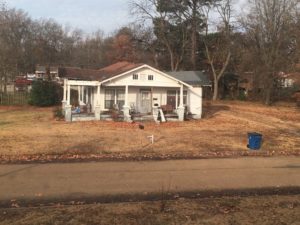
A house in Mississippi on the “other side of the tracks”
Say don’t you know me? I’m your native son
I’m the train they call the City of New Orleans
And I’ll be gone five hundred miles when the day is done
“The train no longer carried mail. In short there wasn’t much still in common with Arlo Guthrie’s ballad, except this: Guthrie released his version of the song in 1971, and the cars we were riding in dated back to the 1970s.”
Yet, Carol and I were enjoying the ride, her second and my eighth aboard America’s anachronistic and almost cynically maintained passenger rail service. I find the staff almost uniformly both helpful and cheerful to an unctuous degree, and even the elimination of a full service kitchen and dining car still left us with three hot meals for our 19-hour trip that remained a cut or so above the food served in coach class on an airplane. Our first class bedroom berth included a complimentary glass of wine at dinner, as well as our own private bathroom. We had all the comforts of home, as long as your home occupies only slightly more than the square-footage of an ADA-sized port-a-potty.
Nighttime on the City of New Orleans
Changing cars in Memphis, Tennessee
Half way home, we’ll be there by morning
Through the Mississippi darkness
Rolling down to the sea
But all the towns and people seem
To fade into a bad dream
And the steel rails still ain’t heard the news
The conductor sings his songs again
The passengers will please refrain
This train has got the disappearing railroad blues
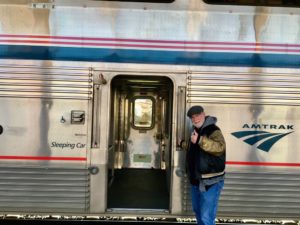
The native son
The nights and days are reversed, and there were no changing of cars, but we were just about halfway home, as we pulled into Memphis the following morning. As we rolled through the Mississippi sunshine, Carol saw cotton fields for the first time. I told her I could only hope the field hands were issued W-2s nowadays, and the foremen carried maybe a clipboard and a watch, instead of a bull whip. Outside of that cinder of social progress, Mississippi not only looked the way it always has, but there was also a sense that it still strove as a state to keep things just that way forever. My guess was that our tracks still described the boundary between the white and black neighborhoods of the towns that did seem to be fading into a bad dream.
We arrived ahead of schedule into New Orleans’s Union Passenger Terminal – not bad for Amtrak. We stood in the warm afternoon, refreshed by a good night’s sleep, good meals, and the still existing leisure of train travel in the United States. But the sense of something dying was strong in the slightly humid afternoon. I looked back at the terminal before hopping into our Uber, and thought: Arlo got this part exactly right, the disappearing railroad blues hung melodic but deeply sad in the heavy air outside the station. One day – a day that may come in my lifetime – I couldn’t help feeling that these steel rails will finally hear the news.
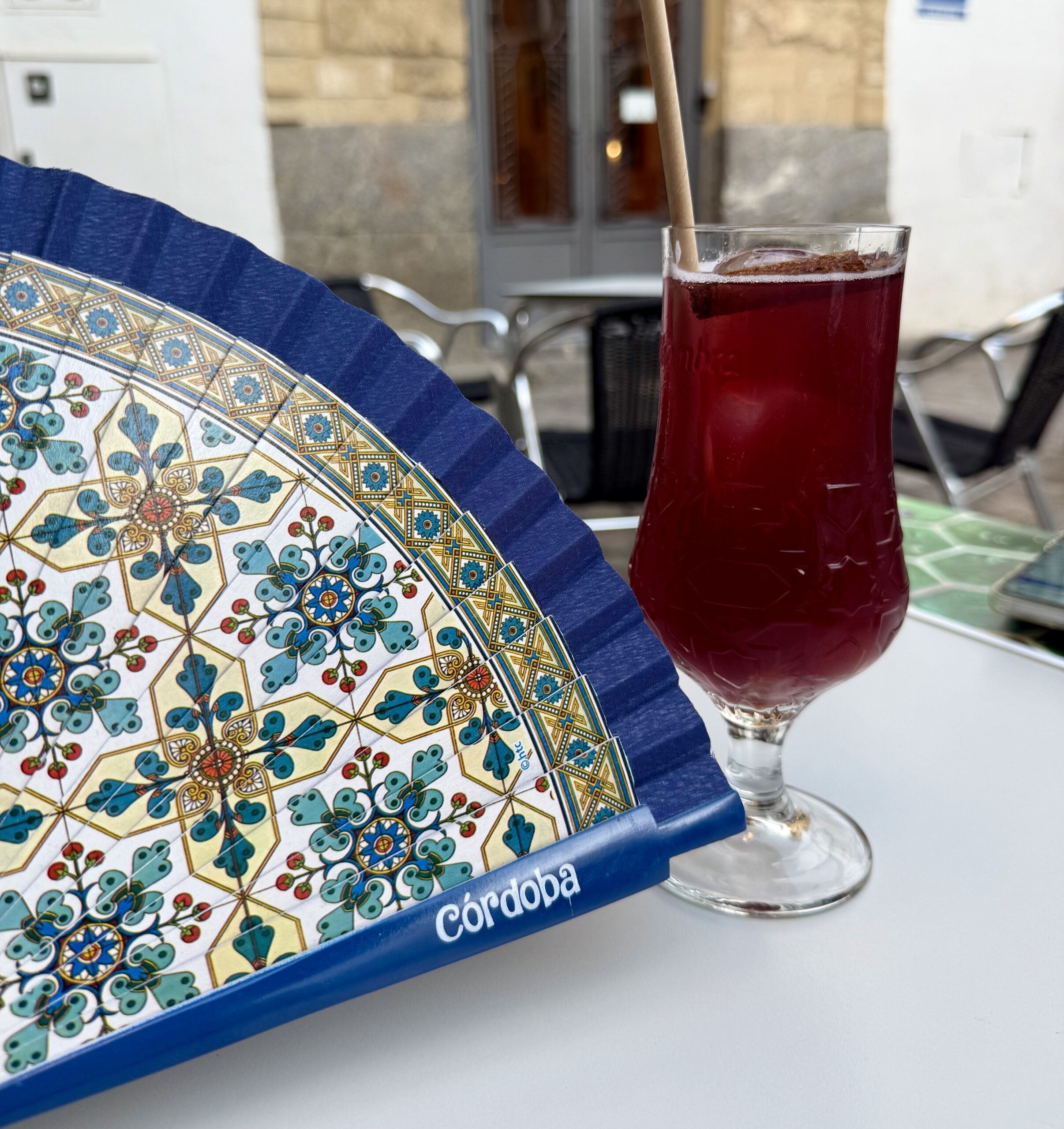
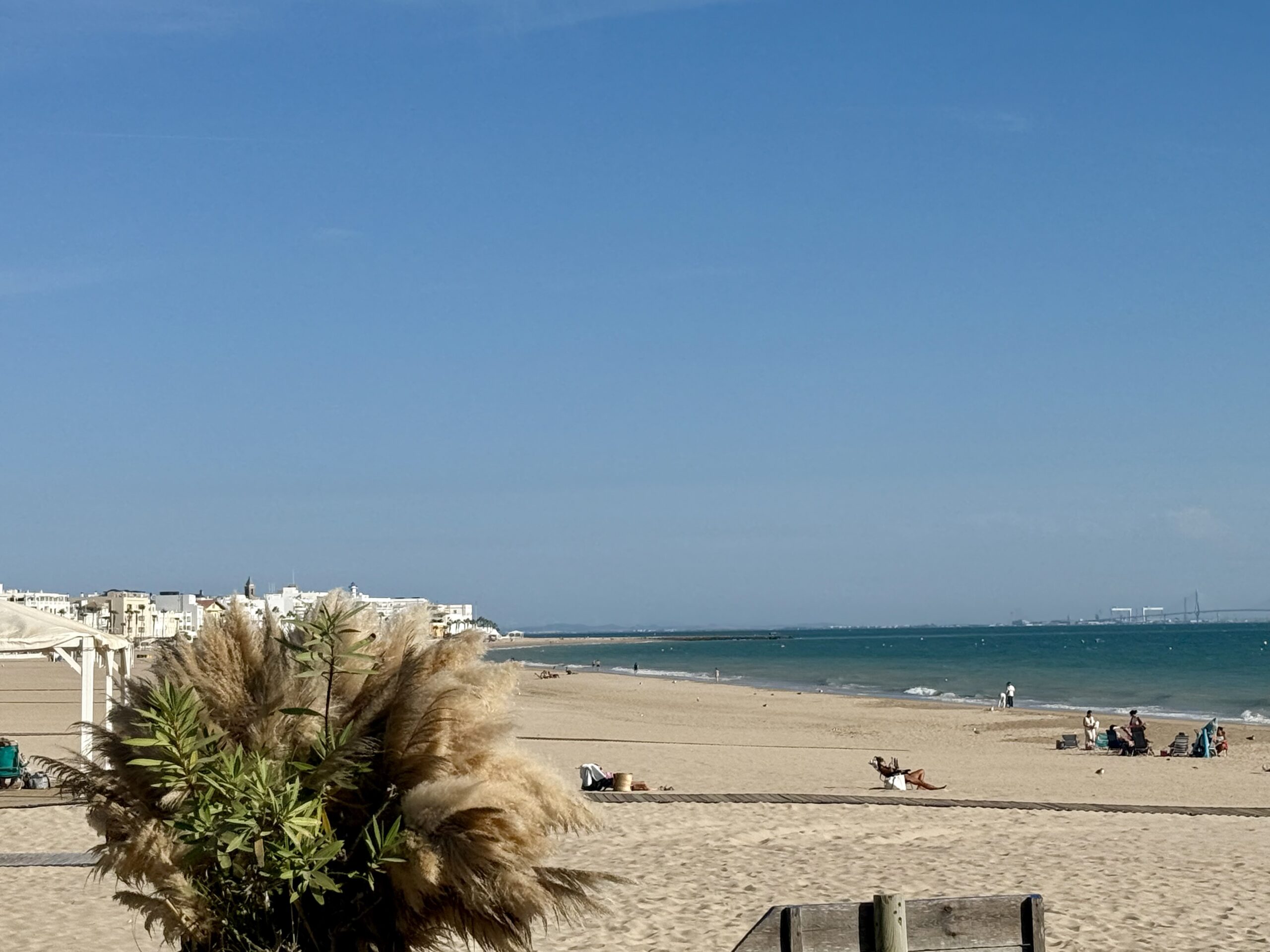

Be the first to comment